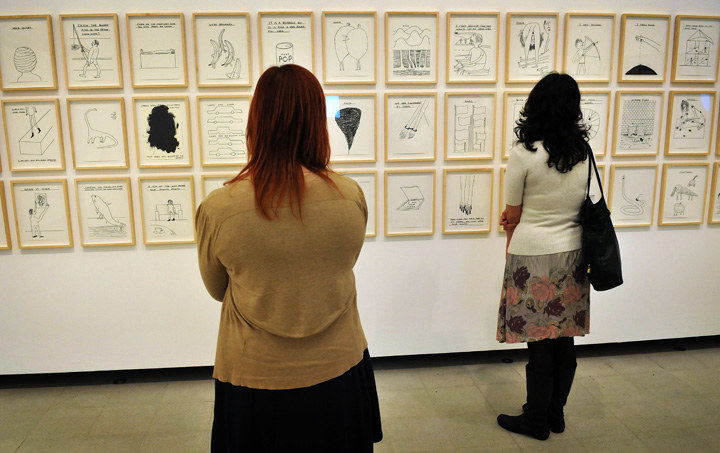TORONTO – Pick a date in the past decade and ask yourself if you can remember when you woke up, what you ate for lunch and who called you in the evening.

It’s nearly unbelievable to witness, but a small group of people are gifted with superior memory – able to recall the minutest details in their lives. But a new study that put their skills to the test suggests this group is just as vulnerable to distorting their memories as the general public.
It’s called Highly Superior Autobiographical Memory and only about 50 confirmed people in the United States have the innate ability.
University of California Irvine’s Lawrence Patihis, a graduate student who specializes in understanding memory distortions, recruited 20 HSAM people along with 38 people with regular memory for his study. He told Global News he got the idea of testing this group after watching a 60 Minutes episode dedicated to HSAM.
“If you generate a date at random from the last 15 years, they almost always can give you the day of the week – without calendar calculation. It’s amazing,” Patihis said.
They can even recite news events that happened around that date and personal events going on in their lives.
READ MORE: As dementia sets in, artists still recall drawing from memory
In an Atlantic feature, a reporter recounted sitting in on the interviews and watched a 50-year-old man with HSAM.
- What is a halal mortgage? How interest-free home financing works in Canada
- Ontario doctors offer solutions to help address shortage of family physicians
- Capital gains changes are ‘really fair,’ Freeland says, as doctors cry foul
- Budget 2024 failed to spark ‘political reboot’ for Liberals, polling suggests
“Special K for breakfast. Liverwurst and cheese for lunch. And I remember the song ‘You’ve Got Personality’ was playing on the radio as I pulled up for work,” the man told the team of researchers. Those were his memories of Dec. 17, 1999. He even noted that was the day jazz player Grover Washington Jr. died.
In another instance, a woman recalled the events of Oct. 19, 1987. It was the day of the big stock market crash and the cellist Jacqueline du Pre died that day.
“When you actually try to do it, it becomes clear that HSAM is almost unbelievable,” Patihis said.
READ MORE: Brain exercise trumps medication in maintaining seniors’ cognitive health: study
But how reliable are these memories and can they be tainted with misinformation?
Patihis and his colleagues tested his volunteers, asking them to read about United Flight 93 of Sept. 11, 2001.The information they were provided was laced with mistakes.
The researchers had planted misinformation through a series of tricks: sneaking in errors in a bunch of true information to hide it, making sure there’s a large enough gap between the event and the release of misinformation, and keeping a smaller time interval between the misinformation and the test.
READ MORE: Brain scan may detect brain disease in NFL players
Turns out the HSAM control group fared just as well as the normal group with average memory when recalling a string of facts. When intertwined with errors, the group with superior memory seemed to confuse their thoughts.
The HSAM participants were equally as likely as the control group to mistakenly report that they’d seen non-existent footage. They even had overall false memory when it came to details in a slideshow.
“What is worrisome about memory distortion is people not knowing about it, or thinking that it does not apply to them,” Patihis told Global News.
“People with all sorts of personalities, intelligences, and memory abilities are still susceptible to some degree of distortion.”
READ MORE: Mood swings, memory loss first symptoms of brain disease in hockey, football players
He said his team’s findings could alter the way law or clinical psychology is run. In those environments, “memory distortions could ruin peoples’ lives.”
“Contaminated eyewitness testimony can send innocent people to prison for decades, and memory distortions of factual or even memory for emotion in psychotherapy can break up families permanently,” he warned.
But, for the most part, our memories are reliable. We have consolidated memories and knowledge of our lives that span years; we don’t forget our names, addresses, phone numbers and family members.
The only trouble is when misinformation is introduced. That glitch in processing information can alter a whole range of memories, from simple words to details in slideshows and even entire events in childhood, Patihis said.
His next steps are to look at individual differences in people with HSAM that might explain their enhanced memory. Patihis and his colleagues want to know if there are certain things they do that hands them an advantage with memory.
His complete findings were published Monday night in the journal Proceedings of the National Academy of Sciences.
carmen.chai@globalnews.ca
Follow @Carmen_Chai


Comments